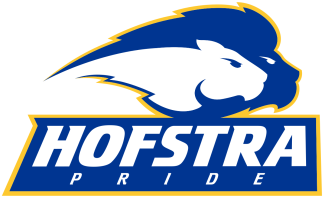Princeton is a place that embraces its history. Along the black fence surrounding Sherrerd Field are banners that commemorate the men’s and women’s lacrosse national championships.
There are a lot of them. Princeton won six NCAA tournament titles from 1992-2001 under Bill Tierney. You can see them in the background every time Sowers shakes his man at X. They’re a reminder of the glory days and the expectations that sprout anew each spring.
Princeton has not reached those lofty standards lately. The last time the Tigers made the Ivy League tournament was Sowers’ freshman year. The last time they made the NCAA tournament, he was a ninth-grader at Upper Dublin.
“While I have been fortunate to put up stats and break records, we haven’t won,” Sowers says. “The ultimate indicator of success is how your team does.”
The Tigers found plenty of success early this season. On Feb. 22, they topped reigning NCAA champion Virginia 16-12 in Charlottesville. The four goals and four assists Sowers registered, a career day for most players, seemed modest compared to his earlier numbers. He posted two and seven, respectively, in an 18-11 win over Johns Hopkins, as Princeton, unranked in the preseason, vaulted into the top five of national polls. Sowers finished February with 42 points in just four games.
Still, he grades himself not by the stat sheet, but by how well he played within the team’s system.
“I feel like nowadays with Instagram and with YouTube and Twitter, every play that you see is a highlight,” he says. “The reality is if you watch me play, I am probably making just as many bad plays as I do highlights. One bad play doesn’t define me, just as much as one good play doesn’t define me.”
If you only watched Sowers’ highlights against Colgate, you missed his two early turnovers and an offside penalty late in the third quarter. You also probably didn’t see his tenacious ride that secured the possession on which he tallied his 11th point.
John McPhee wasn’t on the sideline at Class of 1952 Stadium that evening. He had a cold. But the prolific 89-year-old Pulitzer Prize-winning author, who still teaches a sophomore writing seminar at Princeton called Creative Nonfiction, has not missed many games. McPhee is an academic athletic fellow for the lacrosse team. On a Wednesday in February, Price, the communications advisor, received a call from McPhee. He wanted to make sure he was still on the stadium parking list.
“He’s such a thoughtful person,” McPhee told Price, “and it’s reflected in his play.”
McPhee delves into his various subjects — from oranges, to Alaska, to lacrosse — in obsessive detail. His first book, “A Sense of Where You Are,” focused on Bill Bradley, the former U.S. senator, Rhodes Scholar and NBA All-Star who led Princeton to the Final Four during his senior season in 1965 and earned the Sullivan Award as the country’s most outstanding amateur athlete. Bradley set the school’s all-time scoring record with 2,503 points, without the aid of the 3-point shot.
Bradley’s achievements are hard to ignore on campus. An oversized white No. 42 jersey hangs inside Jadwin. There’s a statue of him, mid-dribble, a couple steps from the ticket booth screens that flash Sowers’ photo every few seconds.
While Bradley’s stature both literally (he’s 6-foot-5) and figuratively exceeds that of Sowers, their similarities are hard to miss in McPhee’s prose.
Bradley develops a relationship with his man that is something like the relationship between a yoyoist and his yoyo.
Bradley calls all men “Mister” whose age exceeds his own by more than a couple years.
Bradley’s play has just one somewhat unsound aspect, and it is the result of his mania for throwing the ball to his teammates.
He had ratified his reputation — not through his point total nearly so much as through his total play.
No matter how many more records Sowers breaks, whether he wins the Tewaaraton or if Chris Bates, who recruited Sowers to Princeton, tabs him with Archers’ No. 1 overall pick in the Premier Lacrosse League draft, one thing is certain. His career is one college lacrosse fans will never forget.
On this afternoon in February, four days before the start of the season, the Princeton lacrosse team warms up on Campbell Field in the shadow of the FitzRandolph Observatory, which houses the second-largest telescope in the hemisphere. The Tigers’ reluctant superstar looks comfortable beneath the floodlights, but out of the glare of the public’s attention.
Sowers leads the team in stretches and passing drills and offers the same instructions he does before every practice: “Have fun and finish every play.”
The undersized kid who arrived on Nassau Street unsure if he belonged has gained a sense of where he is.
He’s exactly where he’s meant to be.
Sowers Speaks
After news broke that Princeton’s season was over, Sowers was the first player to make a statement regarding the unfortunate news. The video is embedded below.


























































